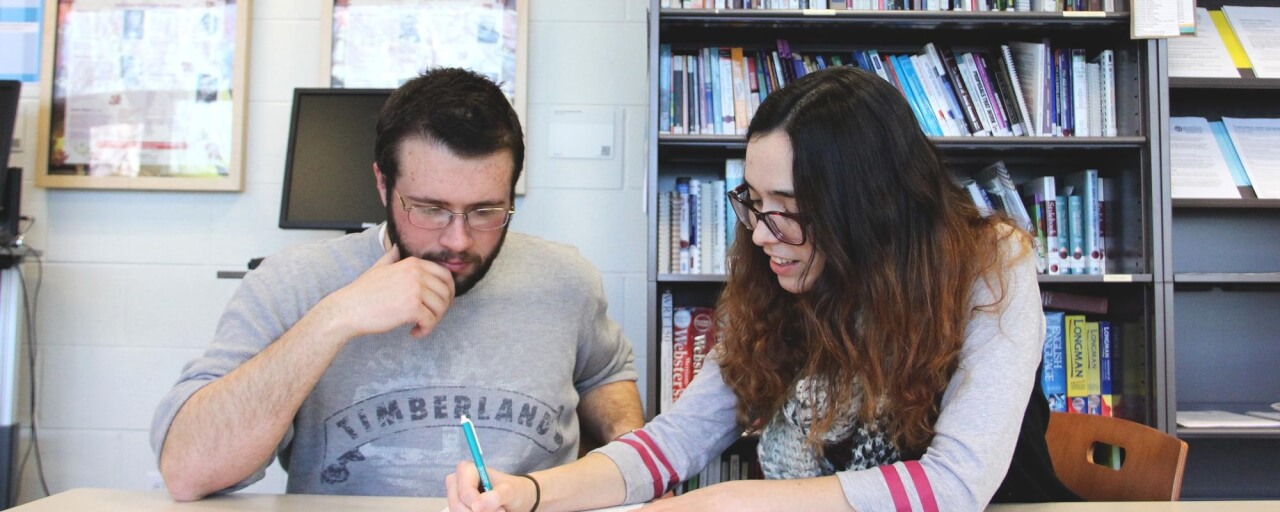A Guide to Writing Terminology
Common Words in Feedback on Writing
What does it mean when a professor says your paper is “unfocused”? What exactly is a thesis? This guide helps answer these questions by defining important terms commonly used by writing instructors (and writing consultants, for that matter!).
Audience
The people for whom the piece is written. At GVSU, especially in Writing 098 or 150, papers are often written for an “academic collegiate audience,” which consists of professors and college students (those who are educated but not necessarily specialists on your topic). It’s important to know who your audience or intended readers are before finishing your writing assignment. Different audiences will accept different writing styles and will want to read about different ideas related to your topic.
Citation
A systematic way of acknowledging/giving credit to other people’s words and ideas (for ideas paraphrased/summarized or directly quoted). Commonly used citation systems at GVSU include MLA, APA, and Chicago Style. To learn more about the importance of citing sources, please see Plagiarism later in this handout
Clarify
Explain; rephrase; make easier to understand. A professor may write on your paper that you need to clarify an idea, in which case you probably need to include more details in your writing. You might also be asked to clarify a sentence, in which case you might need to reword the idea so that it is more easily understandable to readers.
Critique
To look carefully and analytically at both the successful and less successful elements of something. You might be asked to critique a poem or a movie; in writing courses, you might be asked to critique your classmates’ writing. In either case, it’s a good idea to find out what criteria or attributes you should use in critiquing. Are you supposed to critique the ideas? The writing style? This is something to clarify with your instructor.
Development
Relates to writing enough about the various topics in your paper. Your paper might “lack development” if you didn’t write enough to answer readers’ questions about your ideas, or if you didn’t thoroughly support your argument. Developing a paper makes it much more specific and detailed.
Flow
The underlying structure to an entire piece, a paragraph, or a sentence that makes the reading process easy to complete. Oftentimes, "flow" refers to the transitions between ideas -- the threads that connect one idea to another. Other times, "flow" describes the logic to an argument, or the grammar structuring a sentence. In the end, it represents a sense that something is working or not working in a paper which makes it easy to read or difficult.
Focus
A paper’s focus is its central/main idea. To “have focus” is to stay true to the main idea of paper. Focused papers stay on task with no tangents.
Organization
The arrangement of ideas or information in your writing. Good writing has a clear structure, presents ideas in a logical order, and is easy for readers to follow.
Plagiarism
Using another person’s words or ideas without properly documenting the source in a style like MLA (Modern Languages Association), APA (American Psychological Association), or Chicago. Plagiarism is not simply copying another person’s writing word-for-word; just using information from another source, even paraphrased, is plagiarism if you do not use a proper citation. At GVSU, plagiarism is a serious issue. Students who use other writers’ words or ideas without documenting them can fail the assignment or even the entire course. If you’re unsure whether you’re avoiding plagiarism when writing about research, talk to your instructor or a Writing Consultant.
Purpose
What you are trying to do with the assignment. “Purpose” also refers to the paper’s intent: to entertain, persuade, inform, describe, report. The purpose of the paper answers the questions: “Why are you writing this?” and “what do you want readers to know or do after reading your paper?” Often, your assignment sheet will make clear the purpose of the writing: to persuade someone of your point of view; to market a product to a target demographic; to report the findings of a scientific experiment; to analyze the meaning of a poem.
Thesis
The big idea of the paper, often expressed as a one-sentence summary of the main idea. Typically, a thesis comes early in the paper and states an argument, insight, or focus for the paper. A good thesis doesn’t state the obvious. For example, “Garden State is a great movie” isn’t a very good thesis, because it’s not specific enough. Why is the movie so great? What are your criteria for making that statement? A better thesis statement would be “Garden State succeeds because it is both comedy and romance.” An even better thesis statement would be “Because it is both comedy and romance, Garden State appeals to a wide audience and connects to the personal experiences of viewers.”
Transition
The way one thought moves into the next thought. Transitions can occur between sentences, paragraphs, or even entire sections of a paper. Commonly used transitions between sentences or paragraphs include “However” or “But” to show difference, and “In addition” or “Therefore” to show connections between ideas. For help working on transitions, see a Writing Consultant.
To view or print our Helpful Handout, click here: Writing Terminology
Have other questions? Stop in and visit! Or call us at 331-2922.
[1726082831].jpg)

